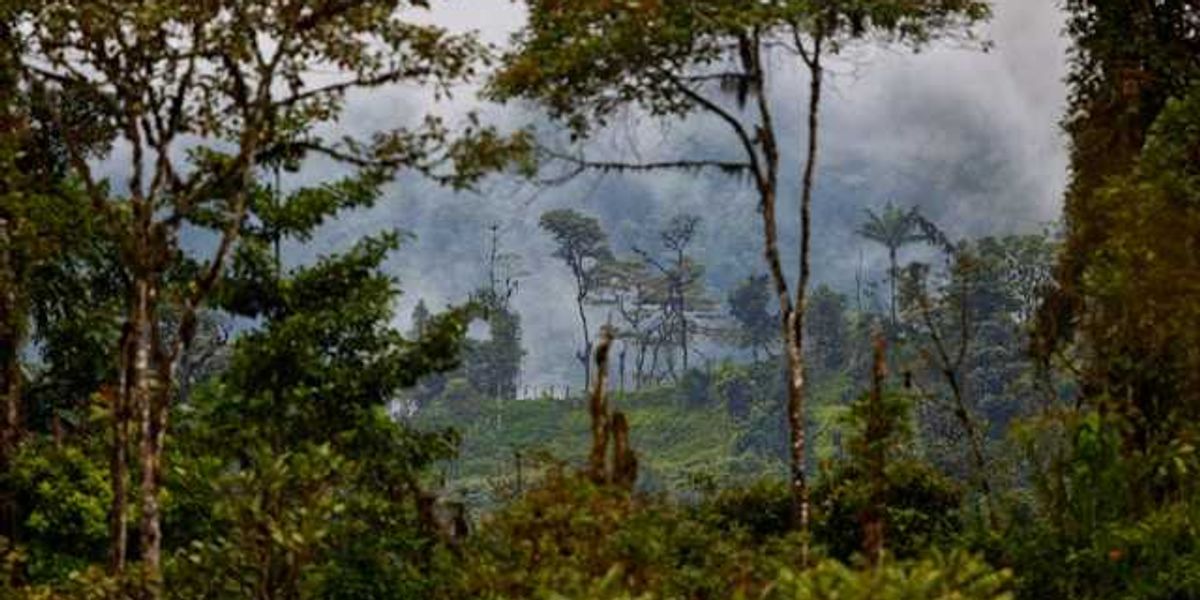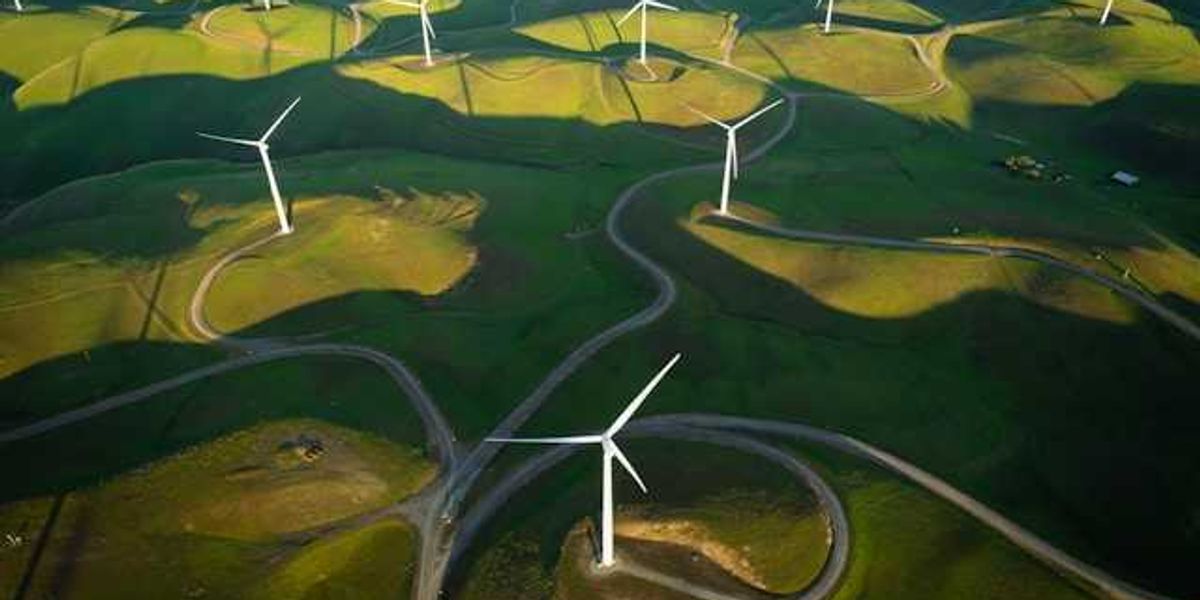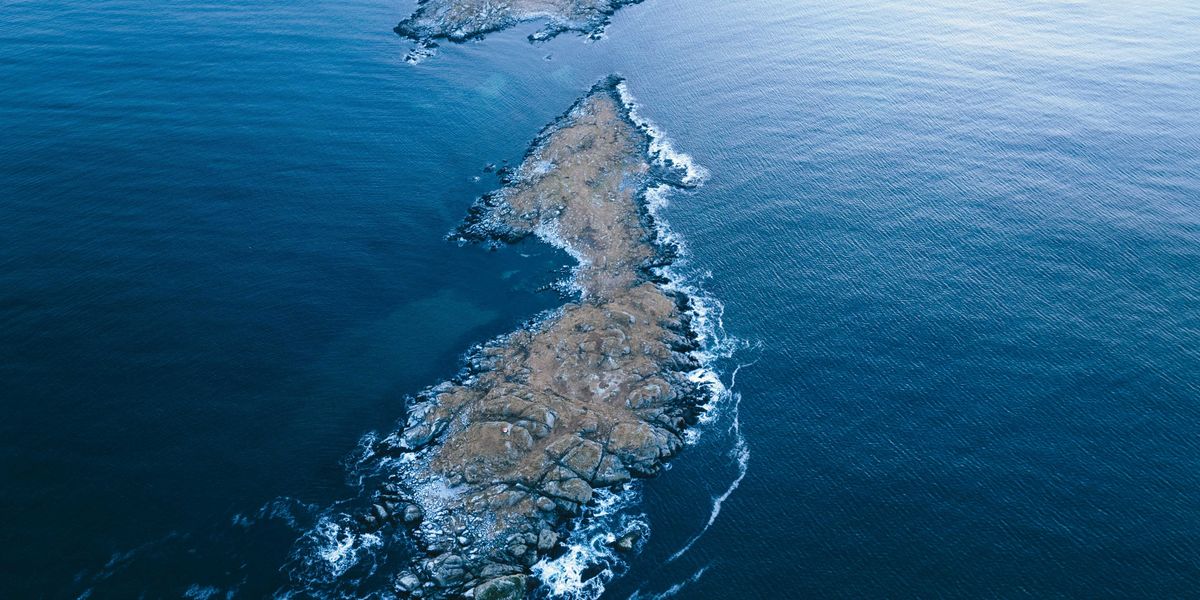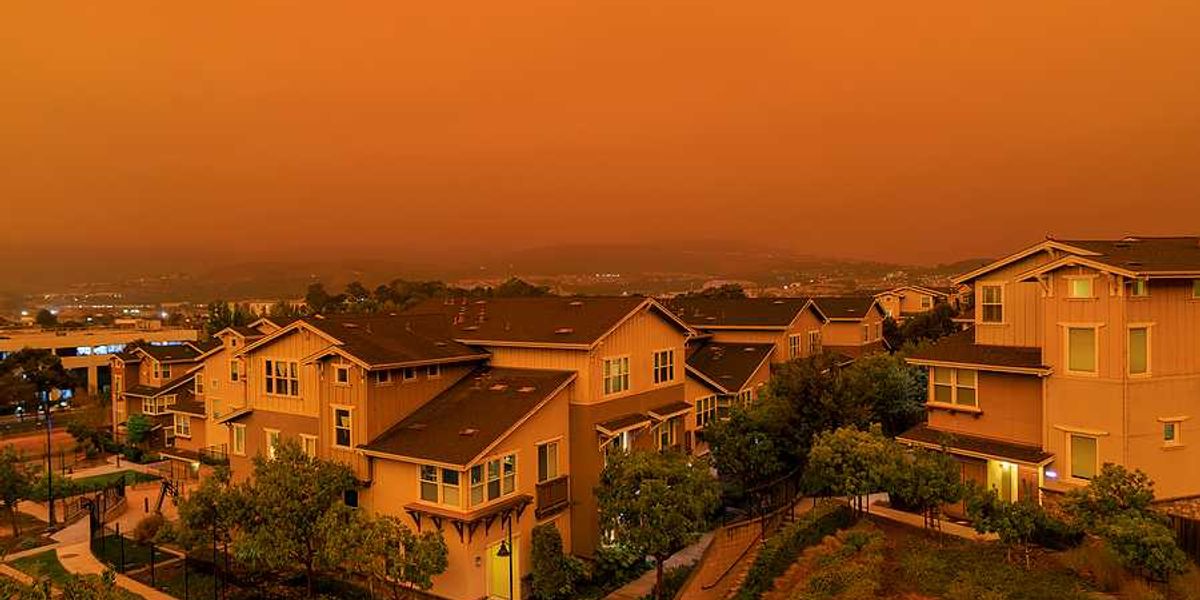
As Trump retreats, financial markets push for sustainability, climate accountability
'If you're not attentive to climate risks, the sustainability of your business is in question.'
NEW YORK—President Trump, speaking before the UN General Assembly Tuesday, vowed globalism is dead. A day later a roomful of suits representing some of the largest pension, mutual and hedge funds in the world offered a very different take.
The globe, they agreed, is moving toward a low-carbon, sustainable economy. Those who haven't factored that shift into their investment strategy are at risk.
Some 300 investors and regulators gathered during Climate Week in New York to talk trends and gain insight about markets at the annual Sustainable Investment Forum. The warning was clear: Mother Nature and the markets are moving forward, even as the Trump Administration retreats and global climate talks appear stalled.
"If you're not attentive to the climate change risks, … the sustainability of your business is in question," said Erik Gosule, managing director at Italy's Amundi Pioneer, Europe's largest asset manager, with $1.7 trillion under management.
Investors are baking a number of "sustainability factors" into their decision-making, financial experts noted repeatedly throughout the day: Fund managers are asking companies about everything from their carbon footprint and exposure to coal to energy transition and whether the company's goals align with the United Nations' goal of keeping global temperature rise below 2º Celsius.
One example: S&P Global, which maintains various Dow Jones indices such as the S&P 500, this week launched a new index that assesses companies' exposure to various climate risks—heatwaves, flooding, sea-level rise—in addition to carbon price and fossil-fuel emissions.

"We are, as a global community, moving to a low-carbon future," said New York State Comptroller Thomas DiNapoli, the chief fiscal officer charged with ensuring that state and local governments use taxpayer money effectively. "It goes to our fiduciary responsibility: We're making decisions for the man or woman who starts work today and is going to be retiring in 25 to 30 years."
And as with so many aspects of climate policy, as the Trump Administration abdicates the country's leadership role, markets and states are stepping in. California is the largest insurance market in the nation, and the fourth or fifth biggest in the world. And the state is using that leverage, said California Insurance Commissioner Ricardo Lara.
The state is reviewing policies to ensure that, if private and commercial property is lost to a flood or wildfire, it gets rebuilt in a sustainable way, Lara said. And it's working with 10 other states to create a climate risk index.
"The responsibility and pressure being put on the insurance industry isn't just regulators," Lara added. "They're getting it from Main Street. They're getting it from industry. They're getting it on all sides."
That change is happening fast. The cavernous room Wednesday was full of men and women in suits—a sea of black and dark gray—prompting Berit Lindholdt-Lauridsen, director of market practice and regulatory policy for the Swiss-based International Capital Market Assoc., to comment, "I don't think there would've been quite so many suits at this discussion four or five years ago."
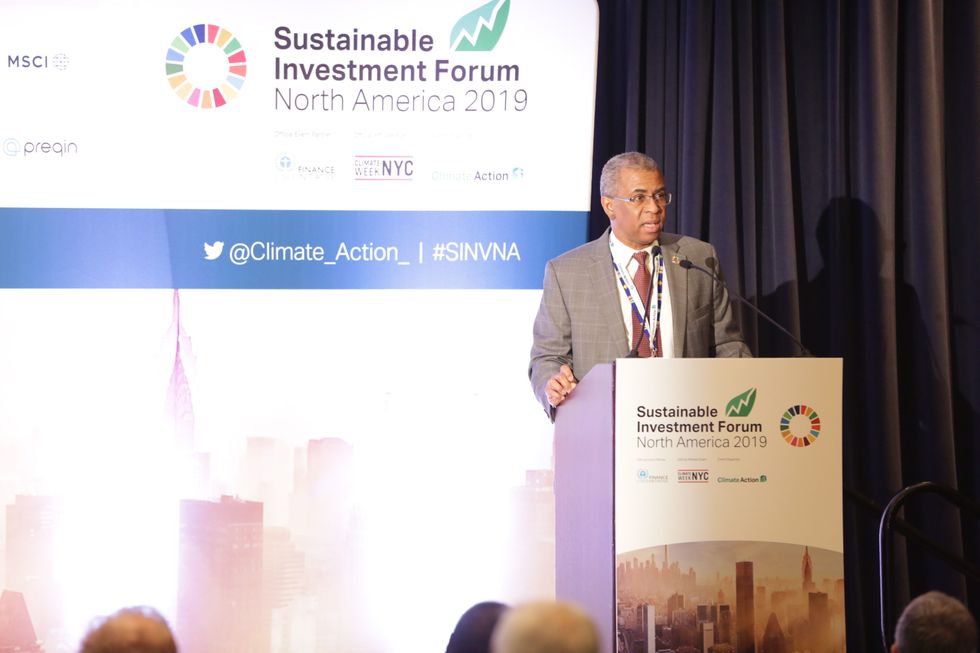
There was also an air of inevitability. The general gist: Get ready now, because change, when it happens, is going to happen fast and be ugly for the unprepared.
"It's a very complex and evolving landscape," said Elliott Harris, Assistant Secretary-General for Economic Development and Chief Economist at the United Nations, who predicted that by 2025, regulatory and market shifts will be "forceful, abrupt and disruptive" in response to climate change.


